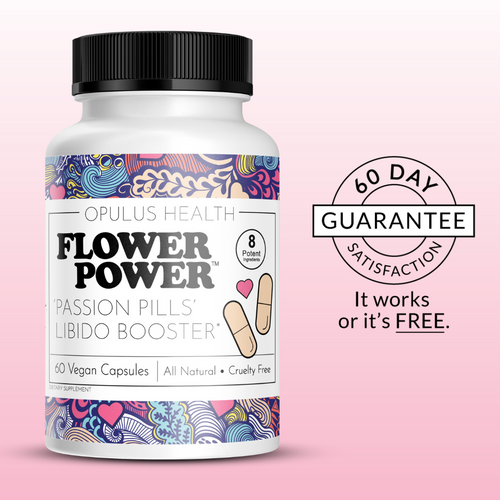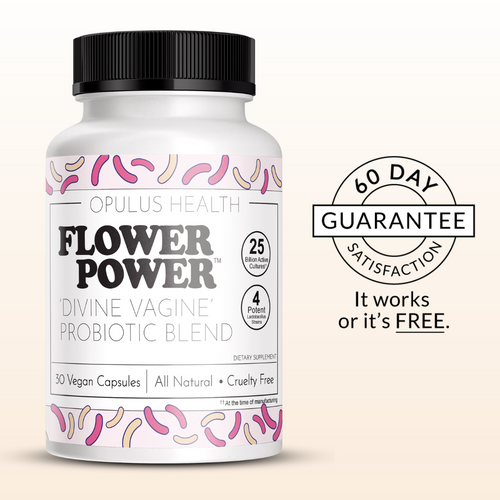
For many women, intimacy has lost its charm. All they can do is remember the good old days when they could have glorious sex whenever they wanted. But those days are gone because they can enjoy sex anymore.
Why can’t they enjoy sex anymore? Because of their low libido. It’s harder than ever to get turned on.
What’s even more frustrating than that? Knowing you want sex, and actually wanting to want it… and yet your body says no thanks. From then on, sex starts to feel like a chore. But it doesn’t have to remain that way.
If you’re struggling with low libido, you’re not alone. Millions of women struggle with low libido every year, and many of them are able to get their libido and energy back.
We’ll talk all about libido in today’s article — from the different root causes of low libido… to the solutions that are more likely to work in your situation.
Understanding Feminine Libido — What’s Normal and What’s Not?
Let’s start with the basics. What is libido?
Your libido is the same as your sex drive — how deeply you want to have sex and how quickly you get turned on. But your libido doesn’t stay the same all your life. It changes over time.
What can affect and change your libido?
There are three things that can affect your libido, and they are:
- Stress,
- Relationship dynamics and
- Hormonal changes.(1)
But there’s something else to keep in mind. If your libido acts up for a day or two, you’re probably fine. But if you’ve noticed that your libido has hit a consistent low point, then that is not normal.
You could be facing a condition known as Hypoactive Sexual Desire Disorder (HSDD).(2) HSDD is when you’re not interested in sex (have no sex drive or a low sex drive), and it bothers you. And for most people, it severely affects their life and relationships.
If that’s you, there’s no need to be scared. HSDD is quite common and it is not a lifelong sentence. Once you figure out and fix the root cause of your low libido, you can easily fix it and get back to enjoying all the sex you’ve missed.
Let’s look at some of the causes of low libido and what to do about each of them.
Causes of Low Libido
Most women experience low libido for three reasons. Those three reasons have something to do with their physical, psychological, and relationship wellbeing.(3)
Let’s look at each of them:
- Physical factors: these are factors that concern the body only. Some of them include lack of sleep, excessive alcohol(4), hormonal changes (especially menopause), certain medications, or health conditions. These things can affect and reduce your sexual desire.(5)
- Psychological factors: these ones are related to your mental health, and they include stress, anxiety, and depression. All three can depress your libido. (6)
- Relationship factors: unresolved conflicts is a known cause of low libido. On top of that, another little-known factor is lack of emotional intimacy with your partner.(7)
So, if you’re experiencing low libido, take a moment to pinpoint the root cause of the problem. Once you put your finger on it, then the problem is already half-solved.
How to Get Your Libido Back
Getting your libido back to where it used to be can be tricky. If it was easy to solve, nobody would be struggling with low libido. But it’s possible.
You might need to embrace a holistic approach that involves lifestyle changes and medical interventions. Plus, if you’re in a relationship, you might need to take a look at your emotional health as well. Are you getting enough attention and loving care from your partner? (8)
Here are a few strategies you can consider:
- Counseling or sex therapy: Counseling can help, especially when the cause of your libido issues is psychological. For example, relationship conflicts,. (9)
- Lifestyle changes: Regular exercise, a balanced diet, enough sleep, and moderate alcohol consumption can boost your libido. (10) So if you’ve been on the go for far too long, consider relaxing more to let your body and libido recharge. Also consider adding natural libido-boosting supplements to your regimen.
- Therapies and treatments: Hormone therapy works wonders for some women, and it may be all you need.(11) It works well for women that are struggling with menopause or certain health conditions. But remember, always consult with your healthcare provider before starting any new treatment.
- Mindfulness and relaxation techniques: Studies show that the less tension you have in your body, the easier you can get turned on.(12) So try some meditation, or deep breathing exercises. It will help you to not put too much pressure on your body to perform.
- Open communication: Talk to your partner about what you’re experiencing. It might feel awkward, but remember, they can’t read your mind (as much as we wish they could). So talk to them and come up with solutions on how to add more spice to your relationship.
Some things you were told about libido is plain wrong
If you’re struggling with low libido, you’ve probably fallen down the rabbit hole of internet advice. But you should know that there’s a sea of misconceptions out there about low libido.
Let’s debunk two of the most common ones:
Myth #1: Only older women suffer from low libido.
It is true that age can affect your libido and make it go down south. But some younger women struggle with low libido as well. In younger women, low libido is usually caused by stress, childbirth, medications, and mental health.
Myth #2: If you have low libido, you don’t love your partner.
Love and libido are NOT one and the same. Many factors, unrelated to your partner, can affect your sexual desire, like hormonal imbalances or stress. And some women can feel guilty when their bodies don’t respond to their partner’s nudges.
No, it has nothing to do with your feelings for your partner. And it doesn’t mean that you don’t love them anymore. It’s just your libido that’s acting up. That’s why it’s a good idea to discuss your struggles with your partners. They’ll understand what you’re going through and also give you the support you need to push through.
Tips for Discussing Low Libido with a Partner
Here are few tips that’ll help:
- Practice open communication: The fact is that you have a partner that loves you. And if they were struggling with a similar condition, you will want to know, because you will want to give them all the support they need. So don’t hold it all in. Share with your partner, they’ll usually want to help.
- Choose the right time: It can be embarrassing to open up about our intimate needs. But we have to do it anyway. And it’s better to discuss them before getting frisky so that everyone will be on the same page.
- Express your love: Reassure your partner that your low libido isn’t reflective of your love or attraction towards them.
Product Recommendations
While talking to a healthcare professional is crucial, here are some researched and doctor-approved products that may help you along your journey:
- Natural Supplements: Maca root and Fenugreek supplements have been found to potentially improve libido in women. However, it’s crucial to consult your doctor before adding these supplements to your diet.
- Lubricants: They’re not just for menopausal women. Lubricants can reduce discomfort during sex and increase overall sexual satisfaction.
Common Questions and Answers
Now, let’s tackle some come FAQs about low libido:
Q: Can birth control affect my libido?
A: Yes, for some women, hormonal birth control can decrease libido. Discuss alternatives with your healthcare provider if you believe this is the case for you.
Q: Can low libido be a sign of another health issue?
A: Absolutely. Conditions such as depression, anxiety, or hormonal imbalances like PCOS can lead to low libido.
Q: Can lifestyle changes improve libido?
A: Yes, improving diet, exercising regularly, reducing stress, and ensuring adequate sleep can all contribute to an improved libido.
In the end, remember that it’s okay to ask for help and seek professional advice. Your sexual health matters, and there’s no shame in wanting to improve it.
You’re Not Alone
If you remember just one thing from this article, let it be this:
Struggling with low libido is nothing to be ashamed of, and it’s not your fault. There are a lot of resources and people out there ready to support you, from healthcare professionals to online communities.
Remember, you have the right to a healthy and satisfying love life, and seeking help is the first step towards reclaiming your sex drive.
And while you look for a solution, remember that every woman’s journey is unique. What worked for your neighbor, friend, or that influencer you follow on Instagram might not work for you.
But that’s perfectly okay. Your path is yours alone. Keep trying things, keep communicating with your physician and partner, and most importantly, keep believing in your ability to heal.
References
- Female Sexual Interest/Arousal Disorder: A Diagnostic Challenge for Clinicians ↩
- Understanding and Managing Female Sexual Dysfunction ↩
- Psychological and Interpersonal Dimensions of Sexual Function and Dysfunction ↩
- Impact of Alcohol and Alcohol Mixed with Energy Drinks on Sexual Behavior: A Critical Review ↩
- Determinants of Female Sexual Arousal: Psychophysiological Theory and Data ↩
- Depression and Sexual Desire: An Exploratory Study in Patients with Depression and Healthy Subjects ↩
- The Effects of Relationship Satisfaction and Relationship Dissatisfaction on Sexual Interactions ↩
- The Return of Desire: A Guide to Rediscovering Your Sexual Passion ↩
- Sex Therapy for Female Sexual Dysfunction ↩
- The Influence of Physical Activity on Sexual Life ↩
- Female Sexual Dysfunction: Therapeutic Options and Experimental Challenges ↩
- The Effect of Mindfulness-Based Interventions on Women’s Sexual Response: A Narrative Review






